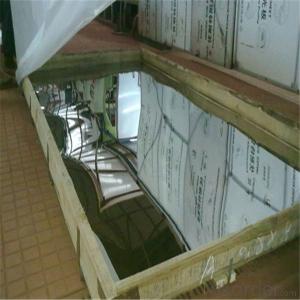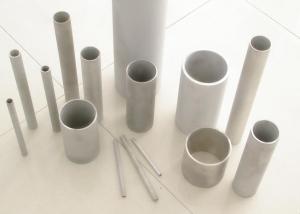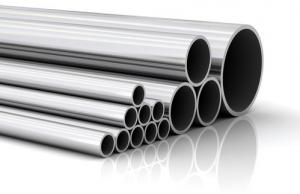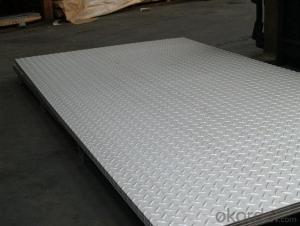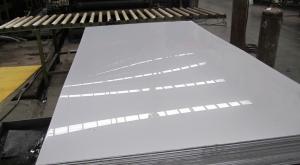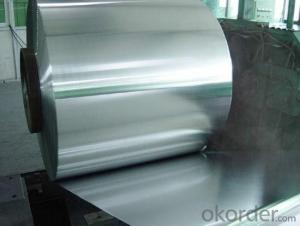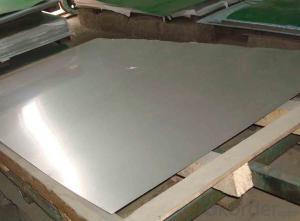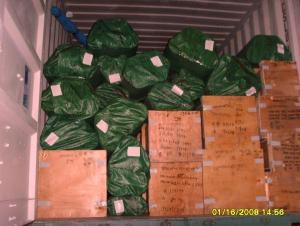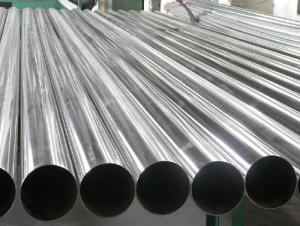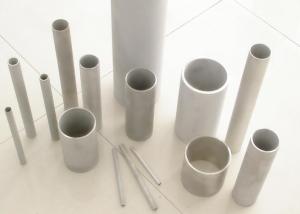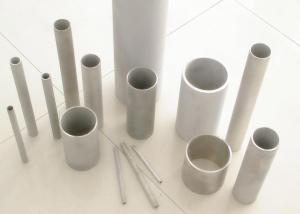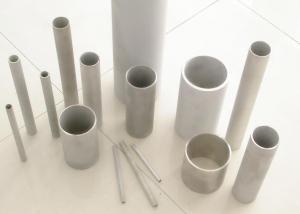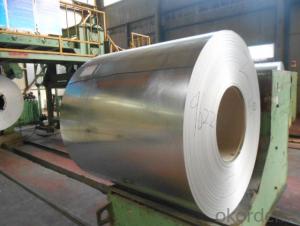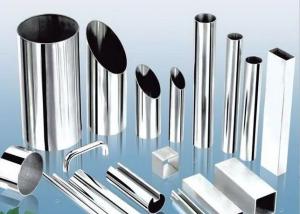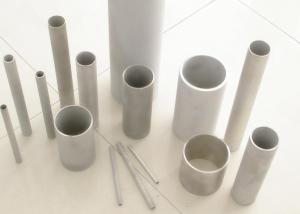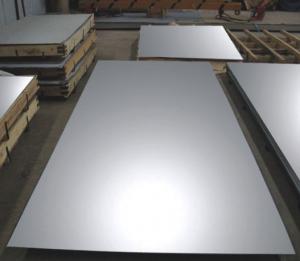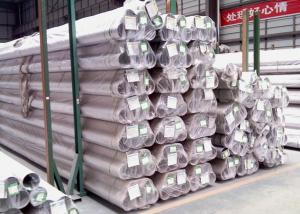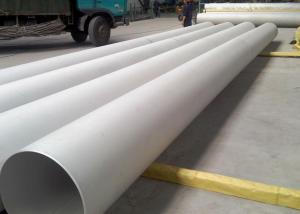Stainless Steel Dinner Plate Hot Sale in China
- Loading Port:
- Shanghai
- Payment Terms:
- TT OR LC
- Min Order Qty:
- 3 m.t.
- Supply Capability:
- 20000 m.t./month
OKorder Service Pledge
OKorder Financial Service
You Might Also Like
Item specifice
Product Description
Hot Sale Stainless Steel Dinner Plate
Material | Ferrite stainless steel, magnetic. |
Certification & Standard | SGS & AISI |
Grade | 410 430 |
Brand | BAOSTEEL&TISCO&JISCO |
Type | Cold Rolled |
Thickness | 0.12mm ~ 2.0mm (tolerances ±0.02 mm) |
Width | 150 mm ~1240 mm(tolerances ±0.02 mm) |
Length | As customers' requirements |
Surface Finish | NO.2B / NO.3 / NO.4 / HL / 8K / BA |
Market | Southeast Asia, Mid East, Africa, Eastern Asia, Western Europe ,etc. |
Delivery Time | 20 to 30 days upon receive of deposits |
The sizes or thickness of stainless steel coil can be customized, if you need additional information, please don't hesitate to contact us at anytime. | |
Chemical Compositon and Physical Property:
| Type | Chemical Composition (%) | |||||
| 410 | C | SI | Mn | S | P | Cr |
| 0.03 | 0.32 | 0.25 | 0.001 | 0.019 | 12.21 | |
LENGTH: 2000-3000mm, customized
WIDTH: 1000-1500mm, customized
THICKNESS: 0.3-20mm, customized
Certification: SGS, ISO
Lead time: 10-15 DAYS
Capacity: 2000 ton/month
Adevantage: we ensure the best quality and provid the best service, the most important is we give you the best price!!!
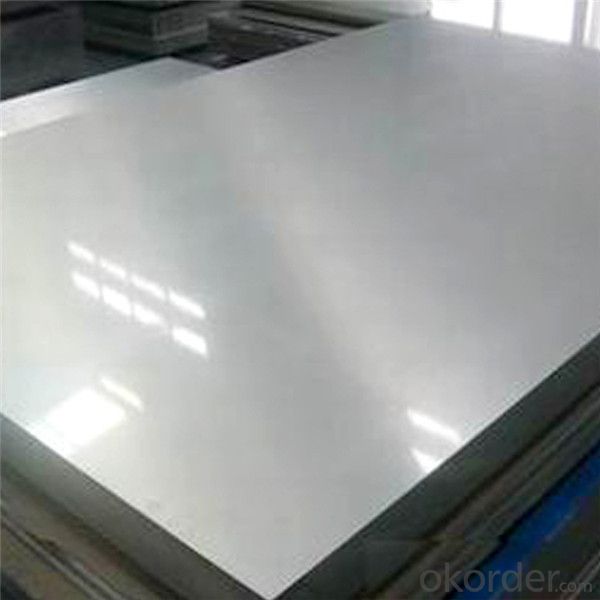
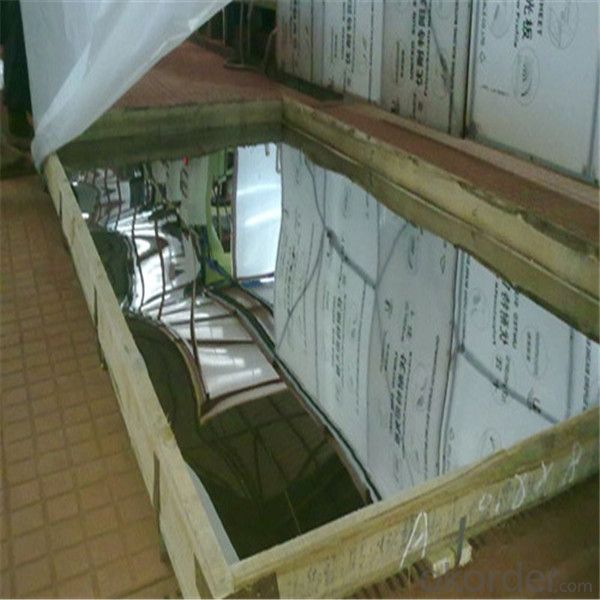
- Q:What are the different types of corrosion that stainless steel sheets can resist?
- Stainless steel sheets are known for their exceptional corrosion resistance compared to other metals. There are several types of corrosion that stainless steel sheets can resist, including: 1. Uniform corrosion: This type of corrosion occurs when the entire surface of the stainless steel sheet is exposed to a corrosive environment. However, stainless steel contains a minimum of 10.5% chromium, which forms a protective oxide layer on the surface, preventing further corrosion. 2. Pitting corrosion: Pitting corrosion is localized corrosion that causes small pits or holes on the surface of the stainless steel sheet. Stainless steel's high chromium content enables it to form a passive film, preventing pitting corrosion from progressing. 3. Crevice corrosion: Crevice corrosion occurs in confined spaces or gaps where stagnant corrosive substances can accumulate. Stainless steel sheets have a resistance to crevice corrosion due to their ability to maintain passivity and prevent the accumulation of corrosive agents. 4. Stress corrosion cracking (SCC): SCC is a form of corrosion that arises from the combined effects of a corrosive environment and tensile stress. Stainless steel sheets are designed to resist SCC, as their high alloy content and passive film formation provide protection against this type of corrosion. 5. Intergranular corrosion: Intergranular corrosion affects the grain boundaries of stainless steel, making it susceptible to cracking and weakening. However, stainless steel sheets are typically manufactured with low carbon content, which prevents intergranular corrosion and ensures their resistance. Overall, stainless steel sheets offer excellent resistance to various types of corrosion, making them a preferred choice for numerous applications in industries such as construction, food processing, and marine engineering.
- Q:How do stainless steel sheets differ from regular steel sheets?
- Stainless steel sheets differ from regular steel sheets primarily in terms of their composition and properties. While regular steel sheets are made of iron and carbon, stainless steel sheets contain additional alloys such as chromium, nickel, and manganese. This composition gives stainless steel sheets a higher resistance to corrosion, making them more durable and suitable for applications where exposure to moisture or harsh environments is a concern. Additionally, stainless steel sheets have a distinctive shiny appearance, known as the stainless steel "finish," which can be maintained even with frequent use.
- Q:Can stainless steel sheets be used for chemical storage tanks?
- Yes, stainless steel sheets can be used for chemical storage tanks. Stainless steel is highly resistant to corrosion and rust, making it an ideal material for storing chemicals, including acids, alkalis, and other corrosive substances. The high strength and durability of stainless steel ensure that the tanks can withstand the pressure and weight of the stored chemicals. Additionally, stainless steel is non-reactive, meaning it does not react with most chemicals, ensuring the purity and integrity of the stored substances. Stainless steel's smooth surface also makes it easy to clean and maintain, reducing the risk of contamination. Overall, stainless steel sheets are a reliable and suitable choice for chemical storage tanks.
- Q:Can stainless steel sheets be used for elevator cabs?
- Yes, stainless steel sheets can be used for elevator cabs. Stainless steel is a popular material choice for elevator cabs due to its durability, resistance to corrosion, and aesthetic appeal. It provides a sleek and modern look, making it a desirable option for both commercial and residential elevators. Stainless steel sheets can be easily fabricated and customized to fit the specific dimensions and design requirements of an elevator cab. Additionally, stainless steel is easy to clean and maintain, which is important for high-traffic areas like elevators. Overall, stainless steel sheets are a suitable and reliable choice for elevator cabs.
- Q:What are the different grades of stainless steel sheets?
- Stainless steel sheets are available in various grades, each offering different properties and characteristics. The most commonly used grades of stainless steel sheets include: 1. 304 Stainless Steel: This is the most widely used grade and is known for its excellent corrosion resistance, good formability, and high strength. It is commonly used in food processing equipment, kitchen appliances, and chemical containers. 2. 316 Stainless Steel: This grade has even better corrosion resistance than 304 stainless steel and is often used in marine environments or applications involving exposure to corrosive chemicals. It also has good welding and forming properties. 3. 430 Stainless Steel: This is a ferritic grade that is commonly used in applications requiring good corrosion resistance and moderate strength. It is often used in automotive trim, kitchen equipment, and decorative applications. 4. 410 Stainless Steel: This grade is a martensitic stainless steel that offers high strength and hardness. It is commonly used in applications where wear resistance and corrosion resistance are required, such as cutlery, surgical instruments, and industrial equipment. 5. 201 Stainless Steel: This is a low-nickel grade that offers good formability and moderate corrosion resistance. It is commonly used in decorative applications, such as architectural trim, appliances, and furniture. These are just a few examples of the different grades of stainless steel sheets available. The choice of grade depends on the specific application and the desired properties of the material, such as corrosion resistance, strength, formability, and cost.
- Q:How do I prevent corrosion under insulation on stainless steel sheets?
- In order to avoid corrosion under insulation on stainless steel sheets, there are several measures that can be taken: 1. Make careful choices when selecting insulation materials. Opt for materials that are compatible with stainless steel and have a low water absorption rate. Avoid using materials that can cause galvanic corrosion when they come into contact with stainless steel. 2. Ensure that the insulation thickness is adequate to prevent moisture condensation on the surface of the stainless steel. Moisture condensation can trap moisture and speed up the corrosion process. Seek advice from an insulation specialist to determine the appropriate thickness for your specific situation. 3. Install vapor barriers between the insulation and the stainless steel sheets. These barriers act as a moisture barrier and prevent water or moisture from entering, which can lead to corrosion. Vapor barriers can be made from materials like foil or plastic films. 4. Pay attention to proper installation techniques to avoid any gaps or areas where moisture can accumulate. Focus on the joints, seams, and connections, ensuring that they are tightly sealed to prevent water from penetrating. 5. Regularly inspect and maintain the insulation system to detect any signs of damage, such as leaks or deterioration. Promptly repair any damaged insulation or vapor barriers to prevent moisture from reaching the stainless steel surface. 6. Provide sufficient ventilation to prevent moisture buildup in enclosed spaces. Good airflow can help reduce the occurrence of condensation and subsequent corrosion. 7. Consider using cathodic protection methods, such as sacrificial anodes or impressed current systems, to protect stainless steel sheets from corrosion. These methods generate an electrical current that counteracts the corrosion process, extending the lifespan of the stainless steel. It is important to consult with corrosion specialists or insulation experts to ensure that the best practices are implemented for your specific application and environment.
- Q:Are stainless steel sheets resistant to acids?
- Yes, stainless steel sheets are generally resistant to acids due to their high levels of chromium and nickel, which form a protective oxide layer on the surface, preventing corrosion and making them suitable for various acid-related applications.
- Q:Can stainless steel sheets be used for conveyor belts?
- Yes, stainless steel sheets can be used for conveyor belts. Stainless steel is a highly durable and corrosion-resistant material, making it suitable for various industrial applications, including conveyor belts. Stainless steel sheets can withstand high temperatures, heavy loads, and abrasive materials, making them ideal for conveying purposes. Additionally, stainless steel's smooth surface allows for easy movement of products and minimizes friction, resulting in efficient and reliable conveyor operations.
- Q:Can stainless steel sheets be used for swimming pool construction?
- Indeed, swimming pool construction can utilize stainless steel sheets. Stainless steel, being a robust and corrosion-resistant material, proves to be an exceptional selection for pool construction. Its ability to endure chemicals and withstand the harsh swimming pool conditions, such as exposure to chlorine and saltwater, is highly commendable. Moreover, stainless steel sheets are effortless to clean and maintain, rendering them a popular choice for both residential and commercial swimming pools. Additionally, stainless steel adds a touch of sophistication and modernity, ultimately enhancing the pool's overall appearance. However, it is crucial to guarantee the usage of high-quality stainless steel sheets that meet industry standards to ensure prolonged performance and safety.
- Q:Stainless steel plate glued to tiles, what glue?
- 1. make sure the sticky material is ceramic and metal;2. determine the size of the bonding surface of the adhesive;3. determine the specific resistance to adhesion of the finished product, that is, the specific bonding requirements, such as adhesive speed / colloid color / colloid viscosity / high / low temperature performance / bonding strength requirements.
1. Manufacturer Overview |
|
|---|---|
| Location | |
| Year Established | |
| Annual Output Value | |
| Main Markets | |
| Company Certifications | |
2. Manufacturer Certificates |
|
|---|---|
| a) Certification Name | |
| Range | |
| Reference | |
| Validity Period | |
3. Manufacturer Capability |
|
|---|---|
| a)Trade Capacity | |
| Nearest Port | |
| Export Percentage | |
| No.of Employees in Trade Department | |
| Language Spoken: | |
| b)Factory Information | |
| Factory Size: | |
| No. of Production Lines | |
| Contract Manufacturing | |
| Product Price Range | |
Send your message to us
Stainless Steel Dinner Plate Hot Sale in China
- Loading Port:
- Shanghai
- Payment Terms:
- TT OR LC
- Min Order Qty:
- 3 m.t.
- Supply Capability:
- 20000 m.t./month
OKorder Service Pledge
OKorder Financial Service
Similar products
New products
Hot products
Hot Searches
Related keywords
